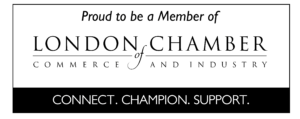The Power of Relationship: Brand insights (via The Arctic Monkeys)
We relate to different people in different ways.
How I relate to my best friend is different to how I relate to an old school friend, which is different again to how I relate to someone I only met a few weeks ago.
Why am I stating this universal truth. Because it’s the same for brands – and the people who try to tell you otherwise are hugely oversimplifying.
All of the above could be classed as friends – but there will inevitably be a hierarchy. Which is largely defined by shared experiences – about knowing who they are – and how they behave, shared connections, affection and trust.
Our best friends generally become best friends because we have similar values, similar interests and because of what we have been through together – shared experiences.
There is a verse in the Arctic Monkeys song A Certain Romance that states that basic premise:
“But over there, there’s friends of mine
What can I say? I’ve known ’em for a long long time
And they might overstep the line
But you just cannot get angry in the same way
No, not in the same way”
Forgiveness
This type of forgiveness and goodwill is seen in most established relationships – and it translates to our brand relationships too.
If a company that has been a personal favourite for a while oversteps the line, then we just don’t get angry, or judge them, in the same way.
If a politician behaves badly our eire is tempered more if they belong to the party we support – but if our political foes make the same error we become enraged. Double standards: definitely. But also typical human behaviour.
We characteristically seek to understand and to forgive more, when we are committed to a relationship. (And usually, the longevity of that relationship is a key factor).
In branding terms this has been summed up in the much used: Know, Like & Trust.
If someone enters our extended friendship group, but whom we don’t particularly like personally, then it’s unlikely we will ever become more than casual acquaintances, even over many years of moving in the same circles. If we do like them but they repeatedly prove they can’t be trusted then eventually we’ll draw back and keep them at a distance.
Don’t push me coz I’m close to the edge
Once or twice we might forgive them. If the indiscretion is something we perceive as ‘pretty minor’ we’ll tolerate them for a while. But eventually, consistent breaking of trust, even for minor things, will mean we simply stop wanting to be around them or associated with them.
That one friend who always drinks too much, shoots their mouth off, gets you into trouble and dodgy situations … if they are a lifelong buddy then we have more patience and will tolerate more – but there is a limit to that patience.
We also tend to cut people more slack when we know what other pressures are going on in their life. The friend whose parent or partner is terminally ill will not generally receive the same level of judgement from us that they might expect otherwise. We recognise that circumstances may alter their normal behaviour. But if we are also experiencing unusual pressures, then two stressed parties interacting do tend to create a very tense environment and in time something will snap.
Again, this translates directly to brand relations. If there are external pressures affecting the relationship a previously forgivable misstep can suddenly create a huge chasm and disconnection.
So what advice can I give to help brands in this regard? (I’m not going to presume to offer any relationship advice – there are relationship counsellors out there if you need them, who are far more qualified to offer thought on that subject!)
In brand management terms:
1. Stay true to who you are.
Trying to be something other than yourself is a mask that will very swiftly slip when times are tough. Difficult times have a habit of showing us who we really are and exposing the truth.
There is an urban myth about a female deep-cover spy in the Second World War being uncovered when in childbirth she swore in her mother tongue. It’s a nice story but I’ve found no evidence to support it.
However, it is based on the insight that it’s incredibly difficult to live behind a facade continuously – it’s far better to “keep it real”.
As author Anne Morrow Lindbergh is often quoted as saying:
“The most exhausting thing you can do is the be inauthentic”
2. Be consistent
This is a key factor in brand building.
If your friend was so erratic that you had no idea what they would do or say next it might be amusing for a short time but it does not lay the foundations for a mutually beneficial friendship. You will always be on edge.
A brand that shows up in the same way and stands for the same stuff, saying the same things – is a brand that people can align with in confidence.
Angela Ahrendts of Apple Inc (who knew a few things about brand building) stated it thus:
“You have to create a consistent brand experience however and wherever a customer touches your brand, online or offline”.
3. Be honest
Honesty really is the best policy. If a brand does make a misstep then owning up, speaking up and fronting up quickly is the best possible plan of action.
When things go bad, history has proven that the best thing for a brand is to acknowledge the problem and then clearly state what they are doing to rectify the situation. There’s even evidence that in doing and following through on their promises, a company can even strengthen brand loyalty.
I’m going to quote three people this time:
“In crisis management, be quick with the facts and slow with the blame.”
Leonard Saffir, Public relations executive
“In a crisis, don’t hide behind anything or anybody. They’re going to find you anyway.”
Bear Bryant, former Alabama football coach
“When written in Chinese, the word ‘crisis’ is composed of two characters. One represents danger and the other represents opportunity.
John F. Kennedy, 35th U.S. president.
Summing up
Relationships are massively important to all of us. In many ways, they help define us and nurture us. There is immense power in relationships – we all recognise that fact and seek out different people to fulfil different roles in our lives.
Our brand relationships are the same. Different brands fulfil different roles for us. For a brand to become a much-loved lifelong companion it has to understand what role it fulfils for its band of loyal followers – and then be the very best version of that it can be. If you represent a brand, be it a business or personal brand, then you consider what type of friend you are, what role you fulfil, how your connections relate to your brand, and why is worth revisiting regularly.







